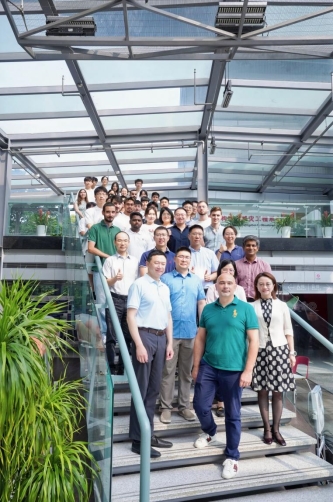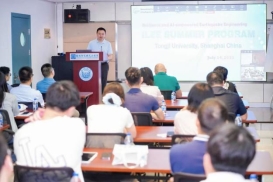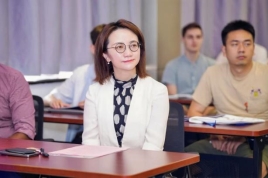
News & Events
The 2025 ILEE Summer School, themed “Resilience and AI-empowered Earthquake Engineering,” was formally inaugurated at Tongji University on July 14th. Established in 2015, the International Joint Research Laboratory of Earthquake Engineering (ILEE) at Tongji University is a renowned academic institution dedicated to advancing research, education, and innovation in earthquake engineering. It aims to become a global hub for international collaboration and academic exchange in earthquake engineering research.

The opening ceremony was chaired by Professor Haitao Yu, Deputy Director of ILEE. Attendees included Mr. Wen Yin, Director of Tongji University’s Office of International Affairs, Professor Ying Zhou, Dean of the College of Civil Engineering and Director of ILEE, distinguished experts such as Professor Daniel Dias from the University of the Alps, Professor Fang Liu (Vice Dean of the College of Civil Engineering), Professor Yiqiu Lu (Deputy Director of ILEE), and vice Professor Decheng Yang, a national-level high-caliber young talent from abroad, along with a panel of experts and nearly 40 scholars and students from over ten countries such as New Zealand, Spain, Germany, Austria, Italy, Greece, Hungary, Iran, and Bangladesh.


Earthquakes remain among the most destructive natural hazards, requiring an integrated approach that considers multi-system interactions and ensures structural performance throughout the lifecycle. Director Wen Yin mentioned that seismology, earthquake engineering, and disaster response together form humanity’s primary defense against such risks. Today, the field is undergoing rapid transformation as artificial intelligence and data-driven methodologies redefine traditional solution strategies.
Professor Ying Zhou highlighted the current trend toward intelligent disaster prevention. She remarked: “Civil engineering has evolved from traditional seismic design to contemporary resilience-based design, shifting the focus from mere structural safety to post-disturbance recoverability. ‘Low-carbon, intelligent, resilient’ now defines the core development of the field. Artificial intelligence is transforming disaster prevention paradigms. At Tongji University, we have consistently remained at the forefront of interdisciplinary innovation, opening a new chapter in digitally intelligent disaster prevention.
Upholding this tradition while embracing change, Tongji University independently developed the CivilGPT large language model, which integrates 44 professional courses, over 500,000 pages of academic literature, and 70,000 test questions. We also place great emphasis on cultivating an open and innovative academic ecosystem. For example, we have jointly developed the Civil Engineering Knowledge Graph in collaboration with the Shanghai Artificial Intelligence Laboratory. These initiatives exemplify Tongji University’s commitment under its Action Plan for Empowering Disciplinary Innovation with Artificial Intelligence.”
The 2025 ILEE Summer School will span two weeks, featuring expert lectures, laboratory tours, and site visits. Seven internationally renowned experts will deliver specialized courses, providing insights into seismic disaster mechanisms and advances in mitigation technologies. Participants will tour China’s State Key Laboratory of Disaster Prevention in Civil Engineering and AI research facilities, observe cutting-edge resources such as large-scale shake tables and pseudo-dynamic testing systems, and gain firsthand experience with applied AI technologies. The summer school also offers specially curated cultural immersion activities in Shanghai.
With the successful conclusion of the opening ceremony, the 2025 ILEE Summer School has officially commenced. Over the next two weeks, participants from around the world are expected to engage in vibrant intellectual exchanges, address technical challenges, and develop collaborative solutions, collectively contributing to the creation of safer, more resilient cities.






 loading......
loading......